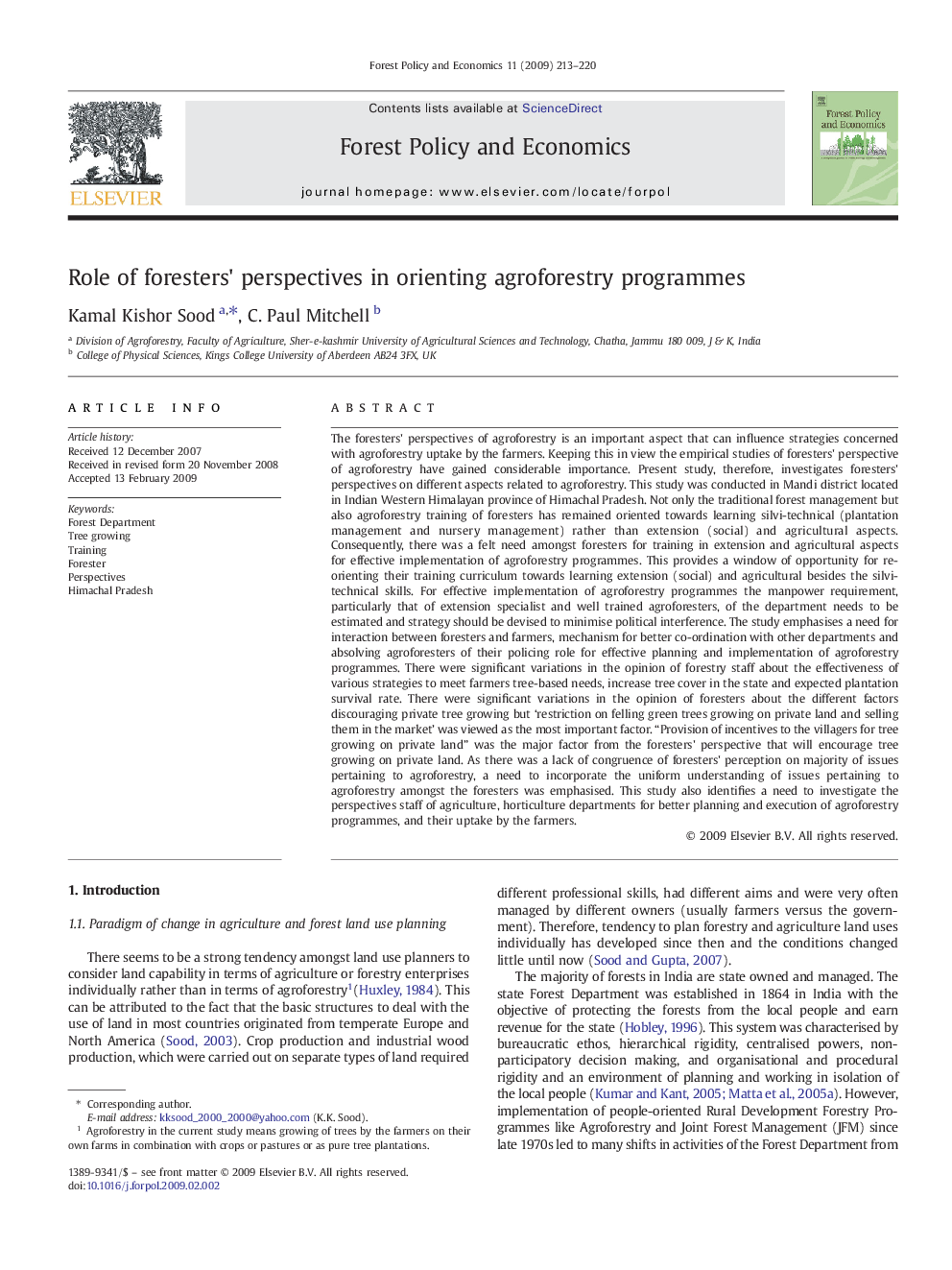| Article ID | Journal | Published Year | Pages | File Type |
|---|---|---|---|---|
| 91880 | Forest Policy and Economics | 2009 | 8 Pages |
The foresters' perspectives of agroforestry is an important aspect that can influence strategies concerned with agroforestry uptake by the farmers. Keeping this in view the empirical studies of foresters' perspective of agroforestry have gained considerable importance. Present study, therefore, investigates foresters' perspectives on different aspects related to agroforestry. This study was conducted in Mandi district located in Indian Western Himalayan province of Himachal Pradesh. Not only the traditional forest management but also agroforestry training of foresters has remained oriented towards learning silvi-technical (plantation management and nursery management) rather than extension (social) and agricultural aspects. Consequently, there was a felt need amongst foresters for training in extension and agricultural aspects for effective implementation of agroforestry programmes. This provides a window of opportunity for re-orienting their training curriculum towards learning extension (social) and agricultural besides the silvi-technical skills. For effective implementation of agroforestry programmes the manpower requirement, particularly that of extension specialist and well trained agroforesters, of the department needs to be estimated and strategy should be devised to minimise political interference. The study emphasises a need for interaction between foresters and farmers, mechanism for better co-ordination with other departments and absolving agroforesters of their policing role for effective planning and implementation of agroforestry programmes. There were significant variations in the opinion of forestry staff about the effectiveness of various strategies to meet farmers tree-based needs, increase tree cover in the state and expected plantation survival rate. There were significant variations in the opinion of foresters about the different factors discouraging private tree growing but ‘restriction on felling green trees growing on private land and selling them in the market’ was viewed as the most important factor. “Provision of incentives to the villagers for tree growing on private land” was the major factor from the foresters' perspective that will encourage tree growing on private land. As there was a lack of congruence of foresters' perception on majority of issues pertaining to agroforestry, a need to incorporate the uniform understanding of issues pertaining to agroforestry amongst the foresters was emphasised. This study also identifies a need to investigate the perspectives staff of agriculture, horticulture departments for better planning and execution of agroforestry programmes, and their uptake by the farmers.
